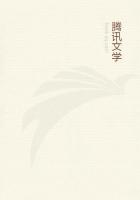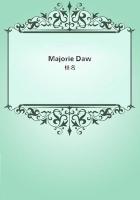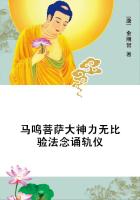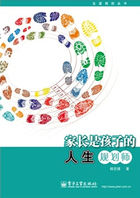SUPERSTITIONS CONCERNING BIRDS
AMONGST the most remarkable of natural occurrences must be included many of the phenomena connected with the behaviour of birds.
Undoubtedly numerous species of birds are susceptible to atmospheric changes (of an electrical and barometric nature) too slight to be observed by man's unaided senses; thus only is to be explained the phenomenon of migration and also the many other peculiarities in the behaviour of birds whereby approaching changes in the weather may be foretold.
Probably, also, this fact has much to do with the extraordinary homing instinct of pigeons. But, of course, in the days when meteorological science had yet to be born, no such explanation as this could be known.
The ancients observed that birds by their migrations or by other peculiarities in their behaviour prognosticated coming changes in the seasons of the year and other changes connected with the weather (such as storms, _etc_.); they saw, too, in the homing instincts of pigeons an apparent exhibition of intelligence exceeding that of man.
What more natural, then, for them to attribute foresight to birds, and to suppose that all sorts of coming events (other than those of an atmospheric nature) might be foretold by careful observation of their flight and song?
Augury--that is, the art of divination by observing the behaviour of birds--was extensively cultivated by the Etrurians and Romans.[1] It is still used, I believe, by the natives of Samoa. The Romans had an official college of augurs, the members of which were originally three patricians.
About 300 B.C. the number of patrician augurs was increased by one, and five plebeian augurs were added. Later the number was again increased to fifteen. The object of augury was not so much to foretell the future as to indicate what line of action should be followed, in any given circumstances, by the nation.
The augurs were consulted on all matters of importance, and the position of augur was thus one of great consequence.
In what appears to be the oldest method, the augur, arrayed in a special costume, and carrying a staff with which to mark out the visible heavens into houses, proceeded to an elevated piece of ground, where a sacrifice was made and a prayer repeated.
Then, gazing towards the sky, he waited until a bird appeared.
The point in the heavens where it first made its appearance was carefully noted, also the manner and direction of its flight, and the point where it was lost sight of.
From these particulars an augury was derived, but, in order to be of effect, it had to be confirmed by a further one.
[1] This is not quite an accurate definition, as "auguries" were also obtained from other animals and from celestial phenomena (_e.g_. lightning), _etc_.
Auguries were also drawn from the notes of birds, birds being divided by the augurs into two classes: (i) _oscines_, "those which give omens by their note," and (ii) _alites_, "those which afford presages by their flight."[1] Another method of augury was performed by the feeding of chickens specially kept for this purpose. This was done just before sunrise by the _pullarius_ or feeder, strict silence being observed.
If the birds manifested no desire for their food, the omen was of a most direful nature. On the other hand, if from the greediness of the chickens the grain fell from their beaks and rebounded from the ground, the augury was most favourable.
This latter augury was known as _tripudium solistimum_.
"Any fraud practiced by the `pullarius'," writes the Rev. EDWARD SMEDLEY, "reverted to his own head.
Of this we have a memorable instance in the great battle between Papirius Cursor and the Samnites in the year of Rome 459.
So anxious were the troops for battle, that the `pullarius'
dared to announce to the consul a `tripudium solistimum,'
although the chickens refused to eat. Papirius unhesitatingly gave the signal for fight, when his son, having discovered the false augury, hastened to communicate it to his father.
`Do thy part well,' was his reply, `and let the deceit of the augur fall on himself. The "tripudium" has been announced to me, and no omen could be better for the Roman army and people!'
As the troops advanced, a javelin thrown at random struck the `pullatius' dead. `The hand of heaven is in the battle,'
cried Papirius; `the guilty is punished!' and he advanced and conquered."[1b] A coincidence of this sort, if it really occurred, would very greatly strengthen the popular belief in auguries.
[1] PLINY: _Natural History_, bk. x. chap. xxii. (BOSTOCK and RILEY'Strans., vol. ii., 1855, p. 495).
[1b] Rev. EDWARD SMEDLEY, M.A.: _The Occult Sciences_(_Encyclopaedia Metropolitana_), ed. by ELIHU RICH(1855), p. 144.
The _cock_ has always been reckoned a bird possessed of magic power.
At its crowing, we are told, all unquiet spirits who roam the earth depart to their dismal abodes, and the orgies of the Witches' Sabbath terminate.
A cock is the favourite sacrifice offered to evil spirits in Ceylon and elsewhere. Alectromancy[2] was an ancient and peculiarly senseless method of divination (so called) in which a cock was employed.
The bird had to be young and quite white. Its feet were cut off and crammed down its throat with a piece of parchment on which were written certain Hebrew words. The cock, after the repetition of a prayer by the operator, was placed in a circle divided into parts corresponding to the letters of the alphabet, in each of which a grain of wheat was placed.
A certain psalm was recited, and then the letters were noted from which the cock picked up the grains, a fresh grain being put down for each one picked up. These letters, properly arranged, were said to give the answer to the inquiry for which divination was made.
I am not sure what one was supposed to do if, as seems likely, the cock refused to act in the required manner.
[2] Cf. ARTHUR EDWARD WAITE: _The Occult Sciences_ (1891), pp.
124 and 125.

